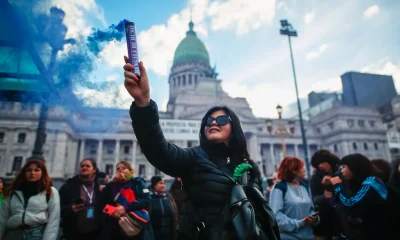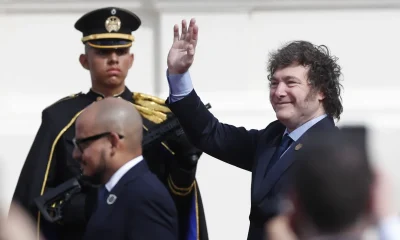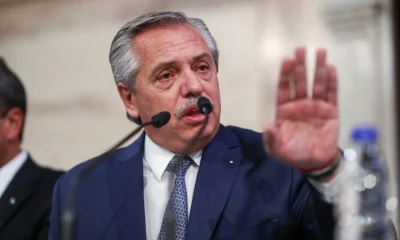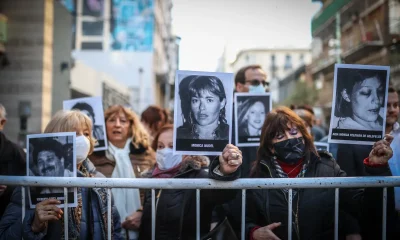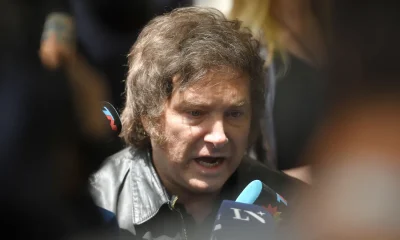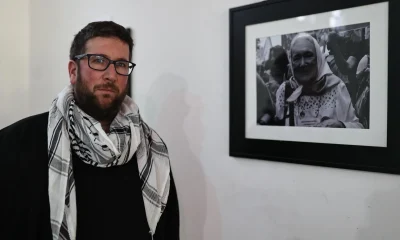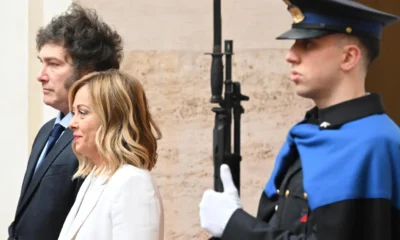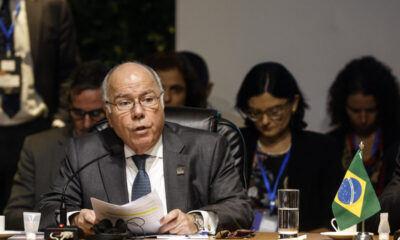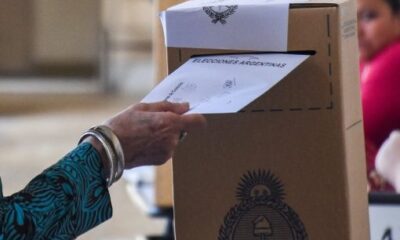International
Milei celebrates 100 days as president, between the controversy and his obstinacy about the course
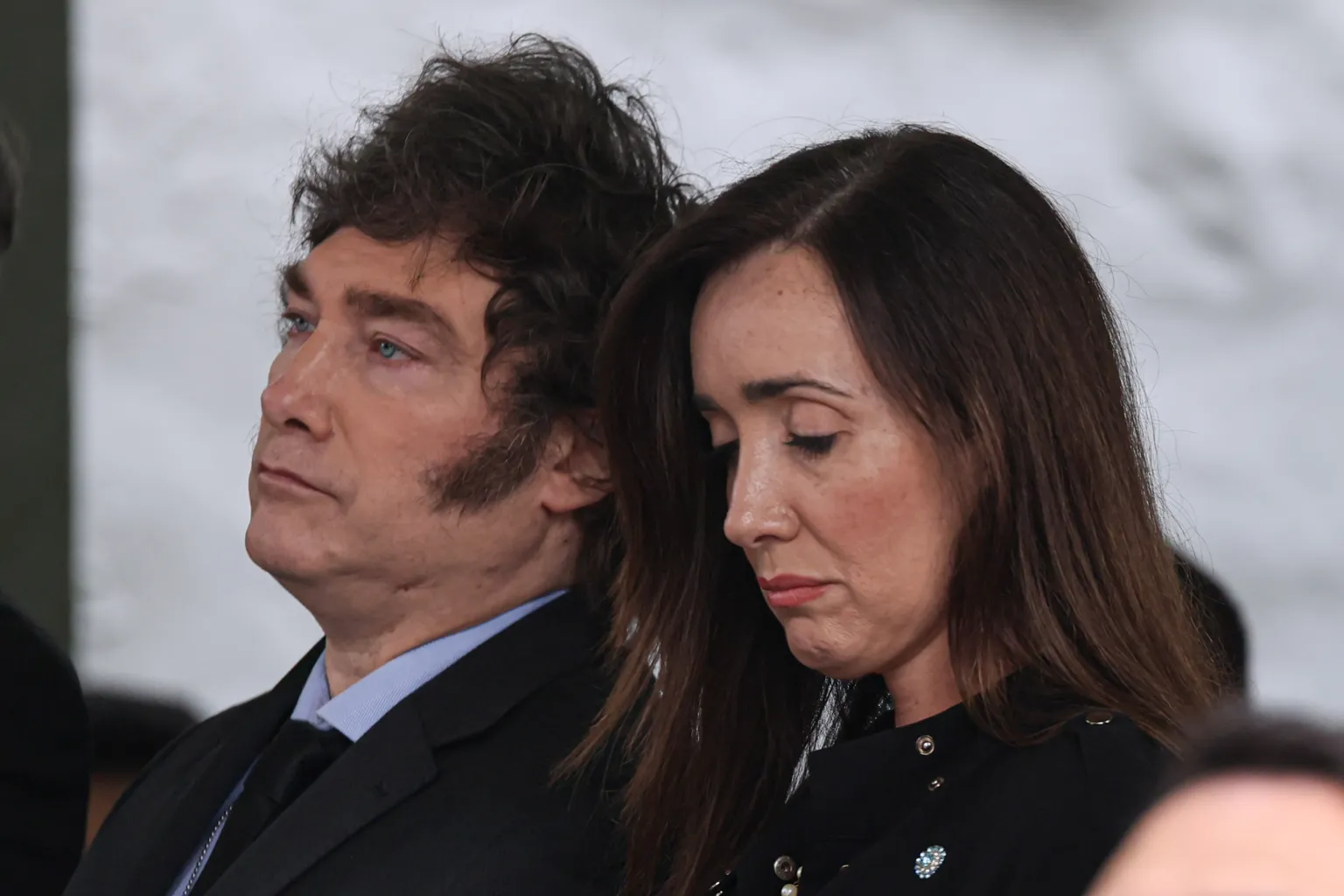
The president of Argentina, Javier Milei, celebrates 100 days of management this Tuesday, in which he has shown obstinacy in the course to achieve fiscal balance and reduce the weight of the State to lower inflation, despite the setbacks in Congress; the fall in purchasing power and criticism for his confrontational method.
In several publications that Milei replied on his social network account X, a direct media that he appreciates a lot, he celebrated that he “avoided the hyperinflation” that was “activated” by his predecessor, the Peronist Alberto Fernández (2019-2023); he began the “sustained process of disinflation” and the decrease in country risk, today at 1,520 basis points.
In terms of security, he replied messages that say that he “ended the pickets” and “he stood against insecurity and narco-terrorism,” and as for corruption, “the amount of illegalities” that he is discovering.
Milei took advantage of this Tuesday to exhibit the unit with her vice president, Victoria Villarruel, on social networks, where they came to publish a photo hugging, after she participated in the meeting of the Cabinet of ministers in the Casa Rosada: “Those who are fighting…!!!,” the president said ironically.
The relationship between Milei and Villarruel reached a peak of tension last week due to the decision of the vice president – who also chairs the Senate – to convene a session in the Upper House where the megadecree of necessity and urgency (DNU) signed by the president in December was rejected.
The presidential spokesman, Manuel Adorni, defined the first 100 days as “a case study” and “an atypical case,” in his usual press conference at the Executive headquarters.
Adorni listed that since Milei took office on December 10, Congress rejected the DNU and a fundamental bill for the Executive, the main union center called for a general strike on January 24 and there were train and bus stops.
In addition, the Patagonian province of Chubut threatened to cut off the supply of hydrocarbons and opposition groups “fantasized” that the far-right would fall for these months.
“This was the only Government (…) that in the first days of the Government has meticulously fulfilled each of the points it had promised in the campaign,” Adorni said, because it “attacked from the outset” the fiscal deficit and clung to the balance of public accounts to “end inflation and the destruction of the currency.”
Milei is an ‘outsider’ who, with aggressive speech and disruptive forms against the “political caste,” won the elections in a second round last November, with 56% support.
“No other government so far had been encouraged to put their hand in politics’s pocket” or “exposed as much to politics” as Milei’s, Adorni said.
Fernández is one of the opposition politicians who criticized the first 100 days of Milei, by showing on his social networks that inflation rose by 71.3%, industrial production fell by 19.4%, retail sales of SMEs fell by 23% and the real salary of registered private workers fell by 27.1%, among other negative indicators.
Amnesty International Argentina warned that the “confrontation” practiced by the Government of Milei is to divert attention from those real conflicts – inflation, poverty, lack of medicines – and violate freedom of expression, and asked for “basic rules of coexistence and non-aggression, especially from the presidential investiture and its collaborators.”
Despite the severe economic adjustment that causes a loss of purchasing power, with inflation that climbed to 276.2% year-on-year last February, Milei maintains a positive image of more than 50%, according to opinion polls.
In that sense, the Government of Milei also boasts of having “changed the concept of governance” because now “it is given by the support of the people,” in a context in which its far-right party, La Libertad Avanza, only has 38 deputies, 7 senators and no provincial governor.
Adorni acknowledged that “there is still a lot to do,” remembering that seven out of ten minors are still poor in Argentina, but that “this time a new sun comes to impoverished Argentina.”
International
Spain’s irregular migrant population rises to 840,000, study finds
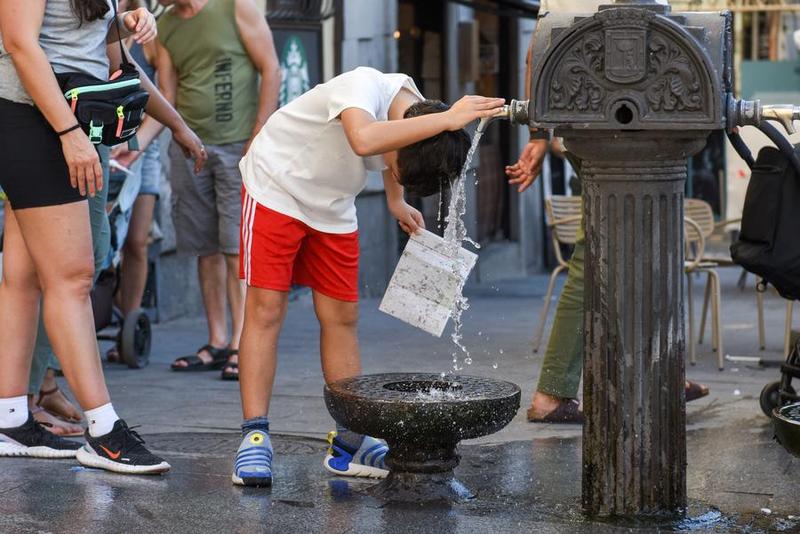
The number of migrants living in Spain without legal residency status continues to rise and has reached 840,000 people, with 91% originating from the Americas, particularly Colombia, Peru and Honduras, according to a report by the Spanish think tank Funcas (Foundation of the Savings Banks).
An estimated 17.2% of the non-EU foreign population living in Spain is in an irregular administrative situation. The estimate is based on the gap between the number of foreign residents effectively living in Spain, according to the National Statistics Institute (INE), and those who hold a residence permit, benefit from international protection, or are in the process of obtaining it.
The data, as of January 1, 2025, point to a notable and sustained increase in irregular migration since 2017, when the estimated figure stood at around 107,000 people, representing 4.2% of the non-EU population residing in Spain.
By origin, migrants from the American continent stand out, totaling around 760,000 people, or 91% of all irregular migrants. Colombians account for nearly 290,000, followed by Peruvians with almost 110,000, and Hondurans with about 90,000. Migrants from Africa (50,000), Asia (15,000) and Europe (14,000) trail far behind.
The figures predate Spain’s latest immigration regulation reform, which came into force in May 2025 and introduces measures to ease access to legal status through residency ties. According to Funcas, the reform would, in principle, tend to reduce the number of migrants in an irregular situation.
International
Historic snowstorm paralyzes Toronto after 60 centimeters of snow

Toronto, Canada’s largest city and the fourth most populous in North America, was largely paralyzed on Monday after a historic snowstorm dumped up to 60 centimeters of snow and sent temperatures plunging to -15 degrees Celsius, authorities said.
Late Sunday, as the scale of the snowfall became clear, city officials declared a climate emergency, triggering extraordinary measures including parking bans on several major streets to facilitate snow removal operations.
Toronto’s public transit authority reported that while some buses remain immobilized, subway and streetcar services are operating with relative normality, though localized disruptions may occur.
A similar situation is affecting the city’s commuter rail network, which remains operational but is experiencing significant delays on its main routes due to the severe weather conditions.
International
Venezuela frees at least 80 political prisoners, NGO says
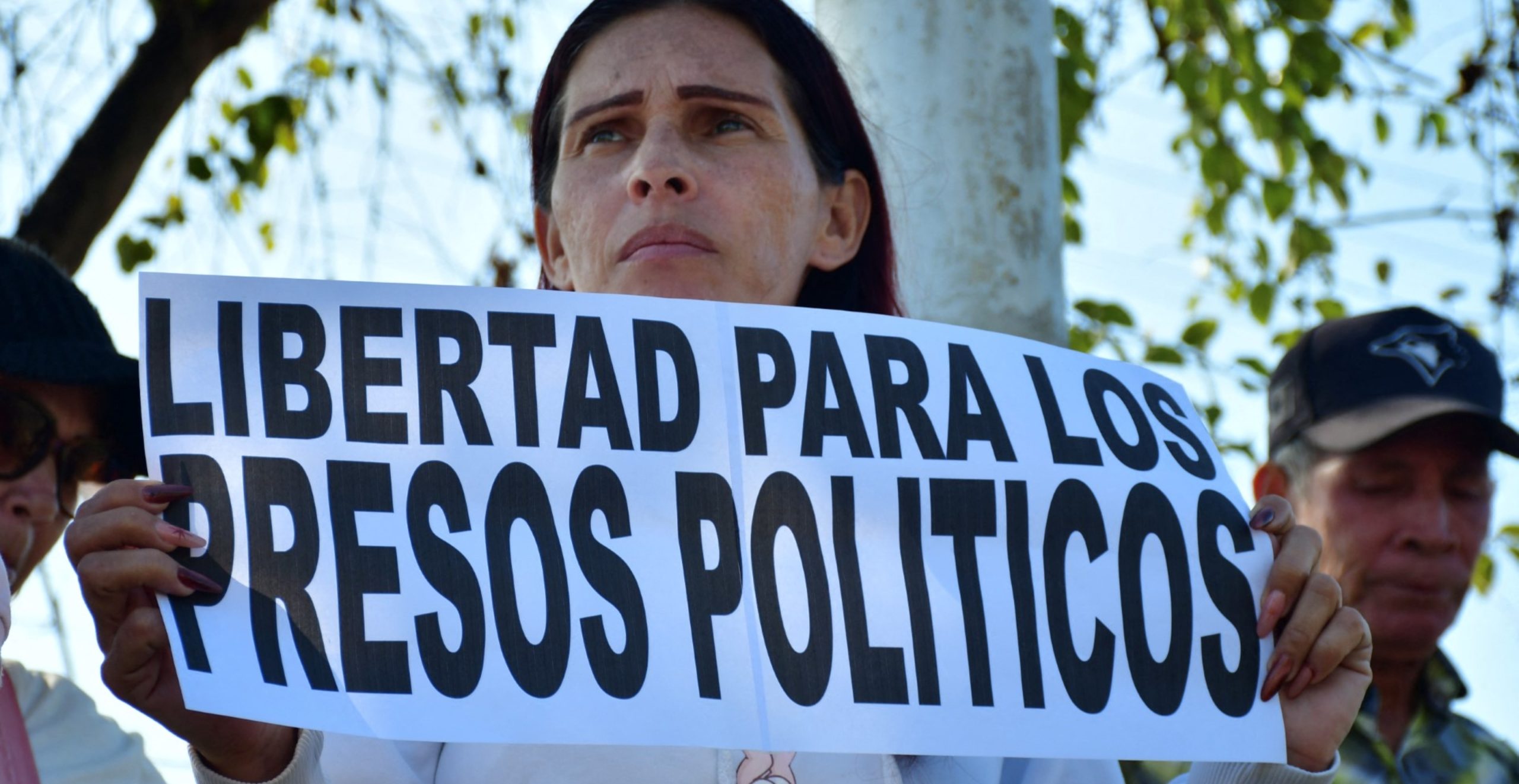
At least 80 political prisoners were released on Sunday across Venezuela, human rights group Foro Penal reported, as the broader process of detainee releases continues at a slow pace under the interim government.
Foro Penal’s director, Alfredo Romero, wrote on social media platform X that verified releases took place nationwide and that the figure could rise as more confirmations are completed.
Attorney Gonzalo Himiob, also from Foro Penal, said the excarcelations occurred during the early hours of the day and emphasized that the number is not yet final pending further verification.
The releases are part of a series of steps announced by Venezuela’s interim leader, Delcy Rodríguez, who took power after the capture of former President Nicolás Maduro in a U.S. military operation on Jan. 3, 2026. Rodríguez has pledged a significant number of liberations but has been criticized by opposition groups and rights organizations for the slow and nontransparent nature of the process.
So far, the Venezuelan government reports that 626 detainees have been freed since December, though independent counts by human rights groups suggest the number of actual political prisoner releases is lower and that many remain behind bars.
Families of those still detained have maintained vigils outside prisons, hopeful for further releases even as broader concerns about political imprisonment and due process persist.
-

 International3 days ago
International3 days agoTrump-Era Defense Plan Prioritizes Border Security and Scales Back Global Commitments
-

 Internacionales4 days ago
Internacionales4 days agoMajor winter storm threatens “catastrophic” ice and snow across much of the U.S.
-

 Central America4 days ago
Central America4 days agoGuatemala’s president rules out negotiations with inmates after prison riots
-

 International4 days ago
International4 days agoGuatemala considers sending high-risk gang members to military prisons
-

 International3 days ago
International3 days agoBogotá and Quito Seek Dialogue After Tariffs and Power Cut Escalate Tensions
-

 International2 days ago
International2 days agoDelcy Rodríguez seeks political agreements after Maduro’s ouster
-

 International4 days ago
International4 days agoRights group says over 5,000 killed in Iran protests, mostly civilians
-

 International2 days ago
International2 days agoFederal immigration agents kill man in Minneapolis, sparking protests and outrage
-

 International19 hours ago
International19 hours agoHistoric snowstorm paralyzes Toronto after 60 centimeters of snow
-

 International19 hours ago
International19 hours agoSpain’s irregular migrant population rises to 840,000, study finds
-

 International19 hours ago
International19 hours agoRights group says nearly 6,000 killed in Iran protest crackdown
-

 Central America19 hours ago
Central America19 hours agoGuatemala seizes over a ton of cocaine hidden in flour at Pacific port
-

 International19 hours ago
International19 hours agoVenezuela frees at least 80 political prisoners, NGO says
-

 International19 hours ago
International19 hours agoEU launches new probe into X over AI-generated fake nude images
-

 International20 hours ago
International20 hours agoFrance debates ban on social media for children under 15
-

 International20 hours ago
International20 hours agoSevere winter storm grips U.S., leaves multiple dead as extreme cold persists







































